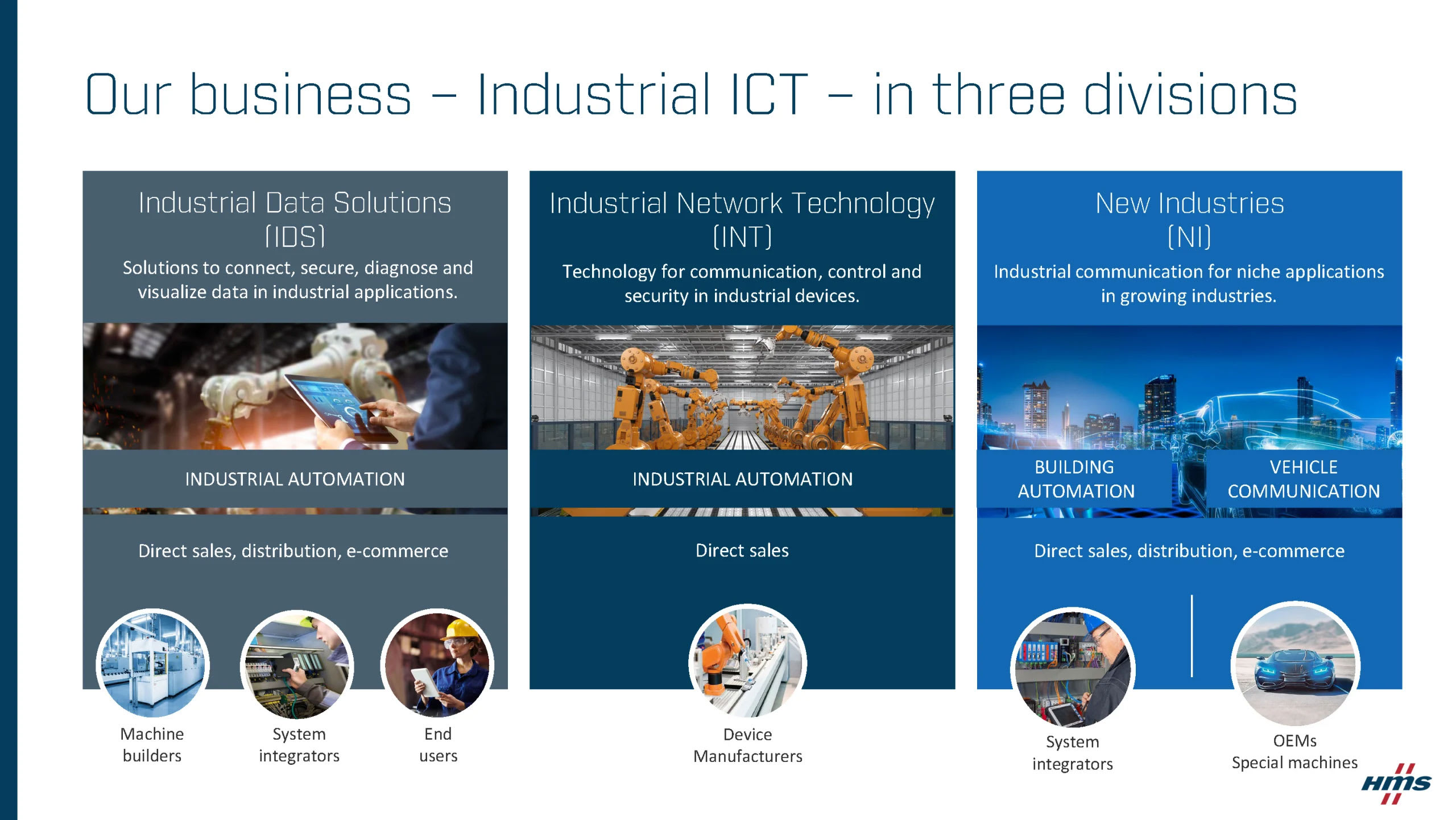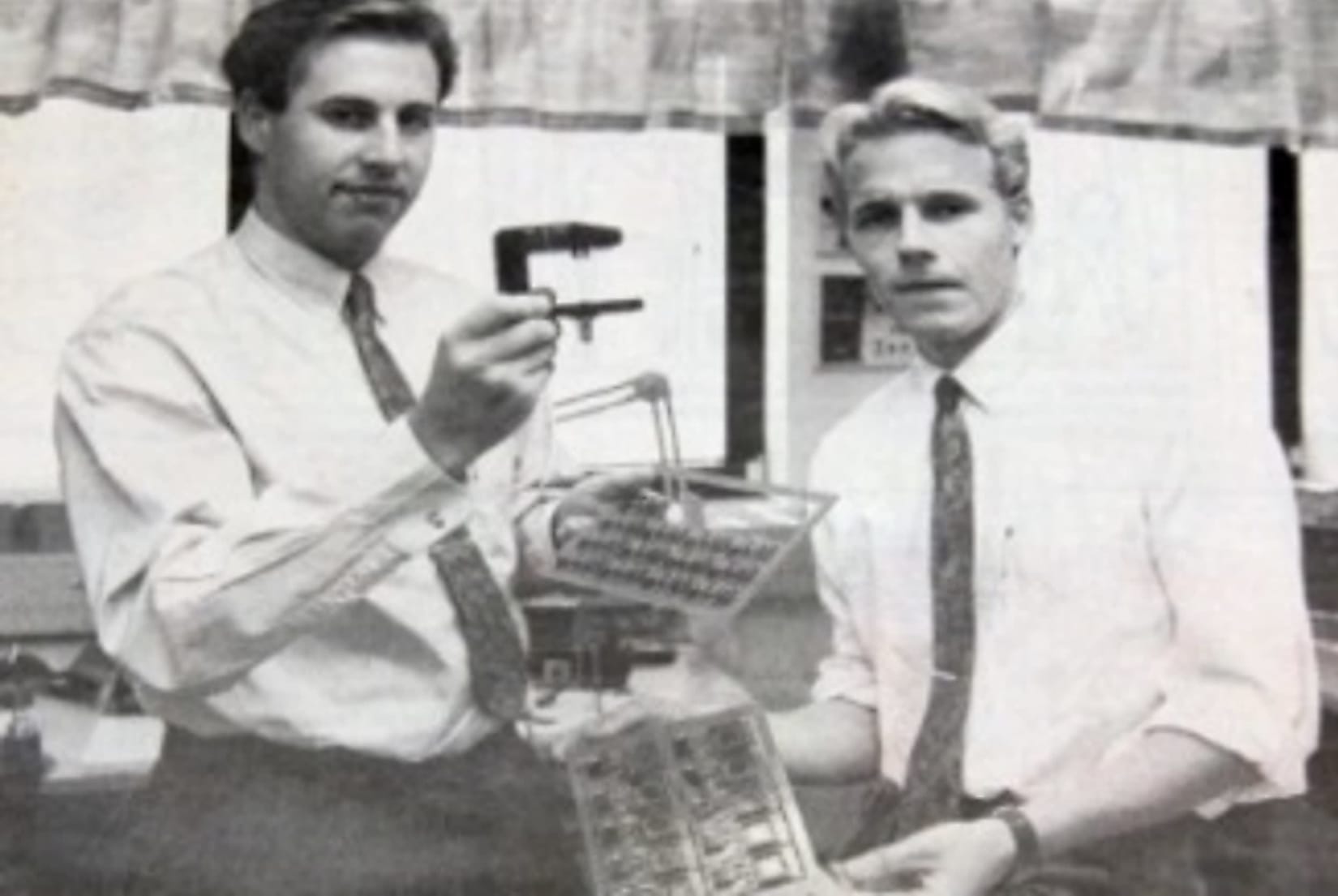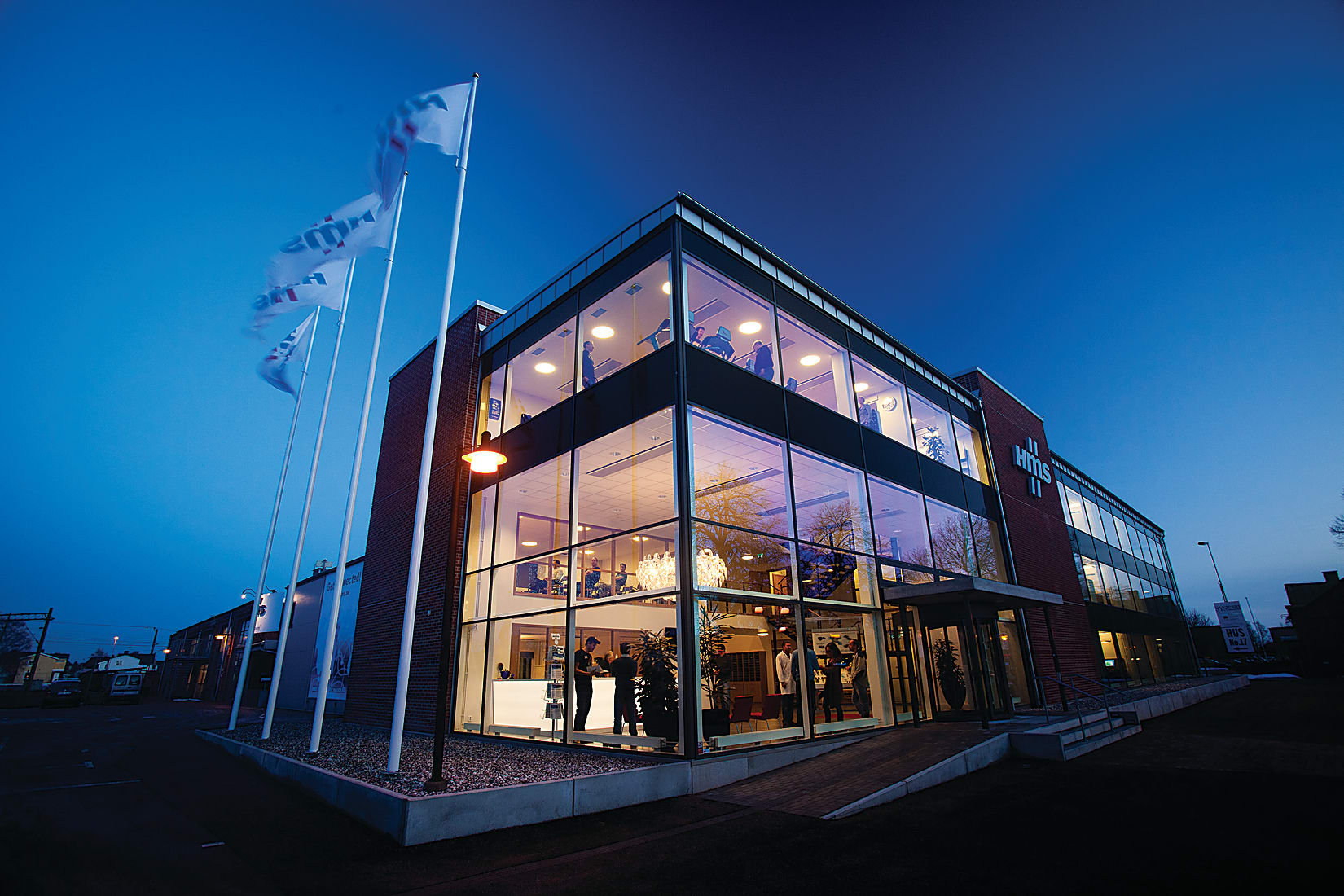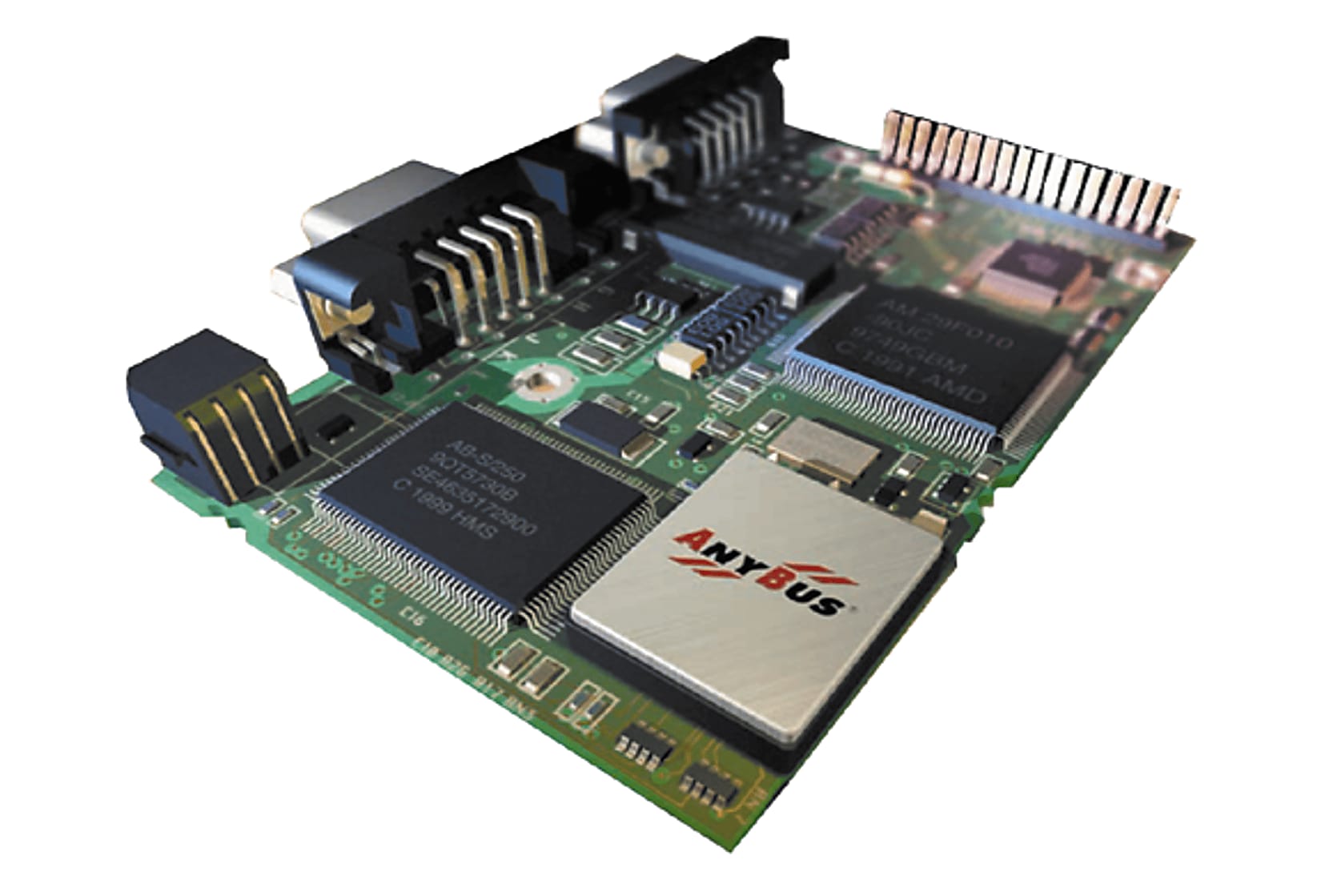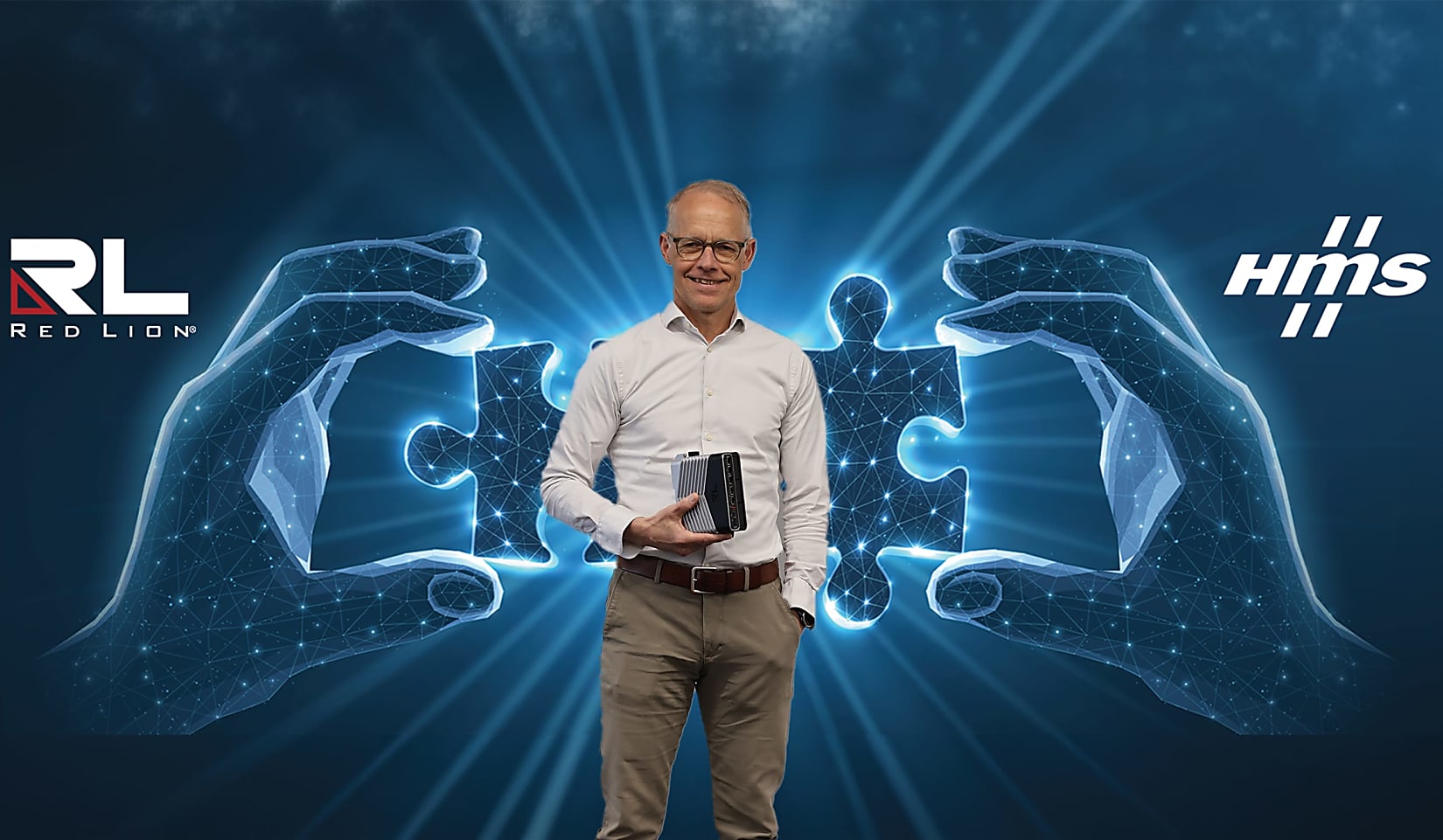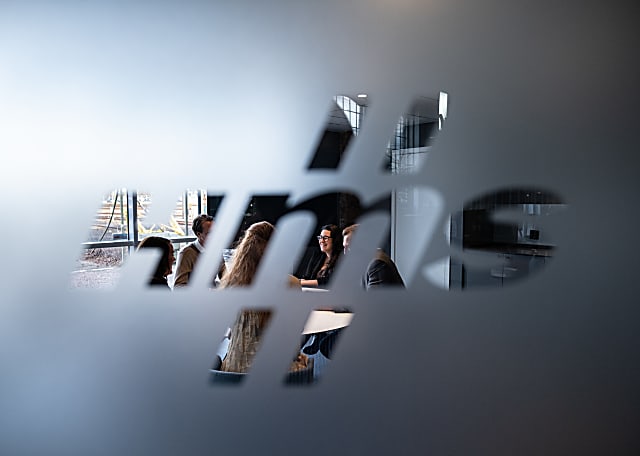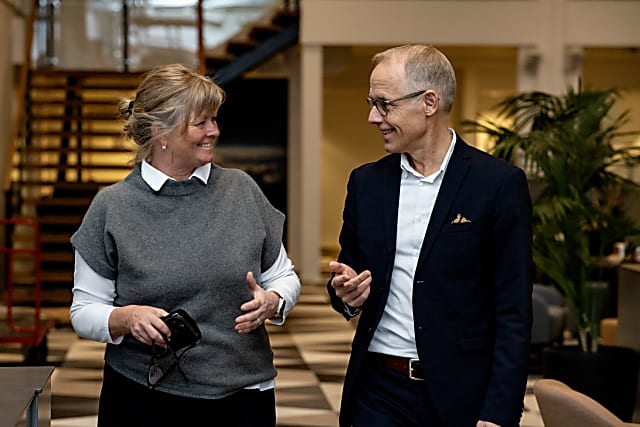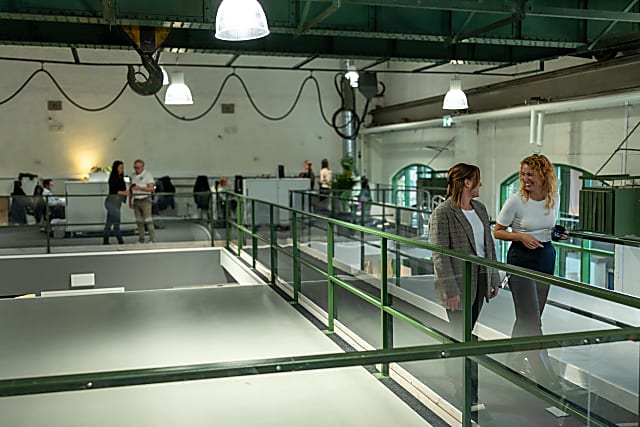1988-1994
The early years
HMS was founded in 1988 based on a thesis project at the University of Halmstad, Sweden. The initial idea was to develop technology for measuring paper thickness. Founder Nicolas Hassbjer and Staffan Dahlström had a passion for electronics and embedded software and worked with 8-bit processors and assembler programming.
The early business was expanded to consultant services and hardware manufacturing. This led HMS into industrial communication, which in those days was a greenfield area with new technologies challenging the traditional way to install and operate industrial automation equipment.
There must be a smarter way to connect industrial devices to different fieldbuses.
The history of the fieldbuses
The start of the first fieldbus era was characterized by new networks like Interbus, DeviceNet and PROFIBUS. Companies such as Atlas Copco and Hitachi started to use HMS to design their industrial communication products for the new fieldbus technologies.
Business was picking up but the young engineering team at HMS asked themselves – “there must be a smarter way to connect industrial devices to different fieldbuses”.
This was the start of a paradigm shift within industrial communication – the Anybus.

Staffan Dahlström and Nicolas Hassbjer in the early 1990s.
1995-2000
Catching the Anybus
The innovative Anybus module enabled an automation device to become network-neutral, and was a success from its first release back in 1995.
Anybus was soon installed in three General Motors factories, paving the way for new customers. HMS' business was booming, but the company realized that it had to invest in both technological and geographical expansion to leverage on the initial success with Anybus.
External investors, SEB Företagsinvest and Industrial Development & Investment, was brought in as shareholders and the company was ready for its next exciting phase.
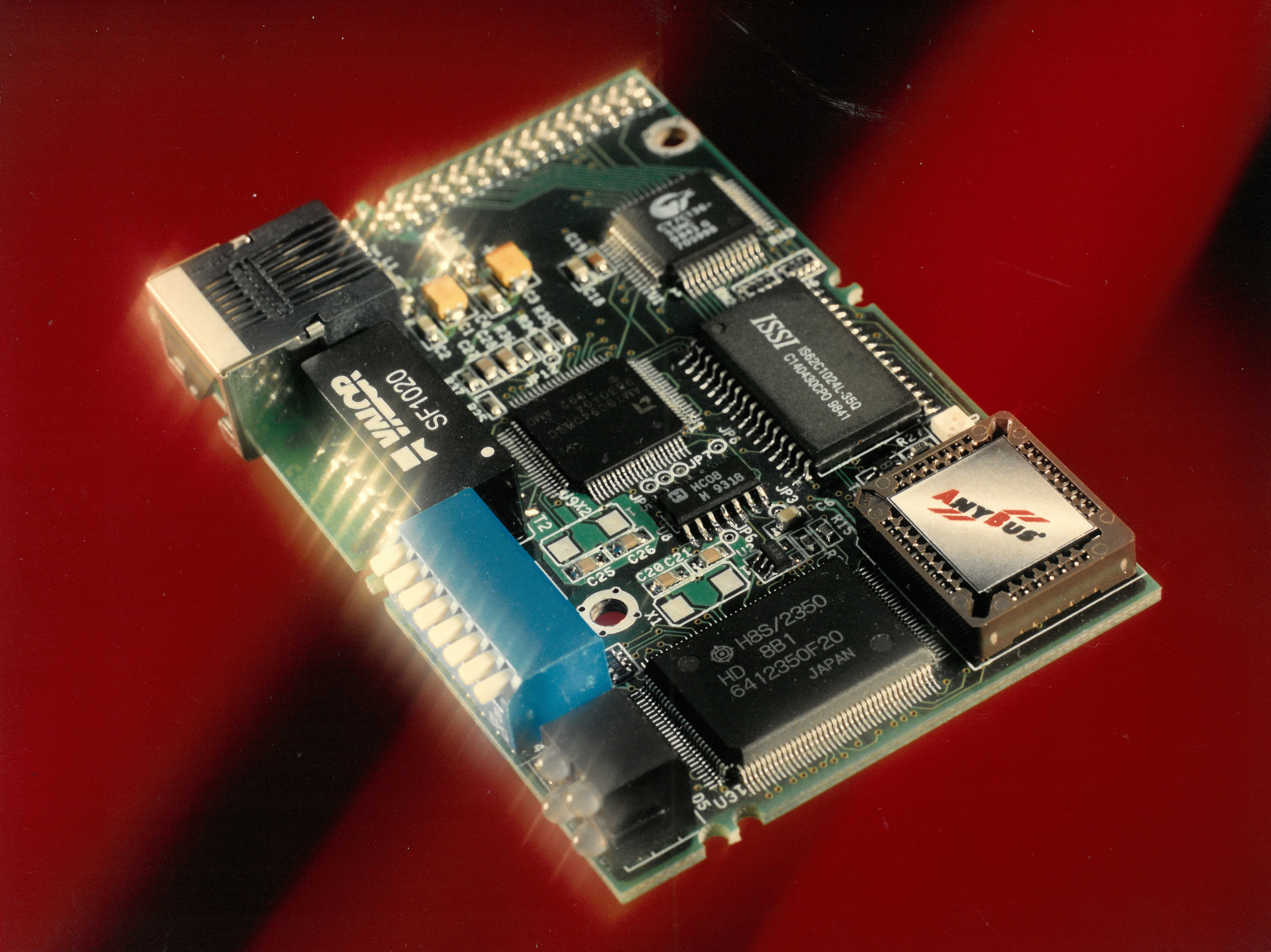
2001-2006
Building an international company
The injected capital allowed a rapid expansion at the turn of the century and HMS grew both in R&D as well as in international sales & marketing. HMS subsidiaries were opened in the USA, Japan and the acquisition of Vcom GmbH formed HMS sales office in Germany. Major investments were made in R&D and the Anybus patent was approved in the US and several other countries.
HMS realized that manufacturing and quality are cornerstones in a long-lasting growth strategy and HMS customers in Japan pushed HMS to new levels of performance.

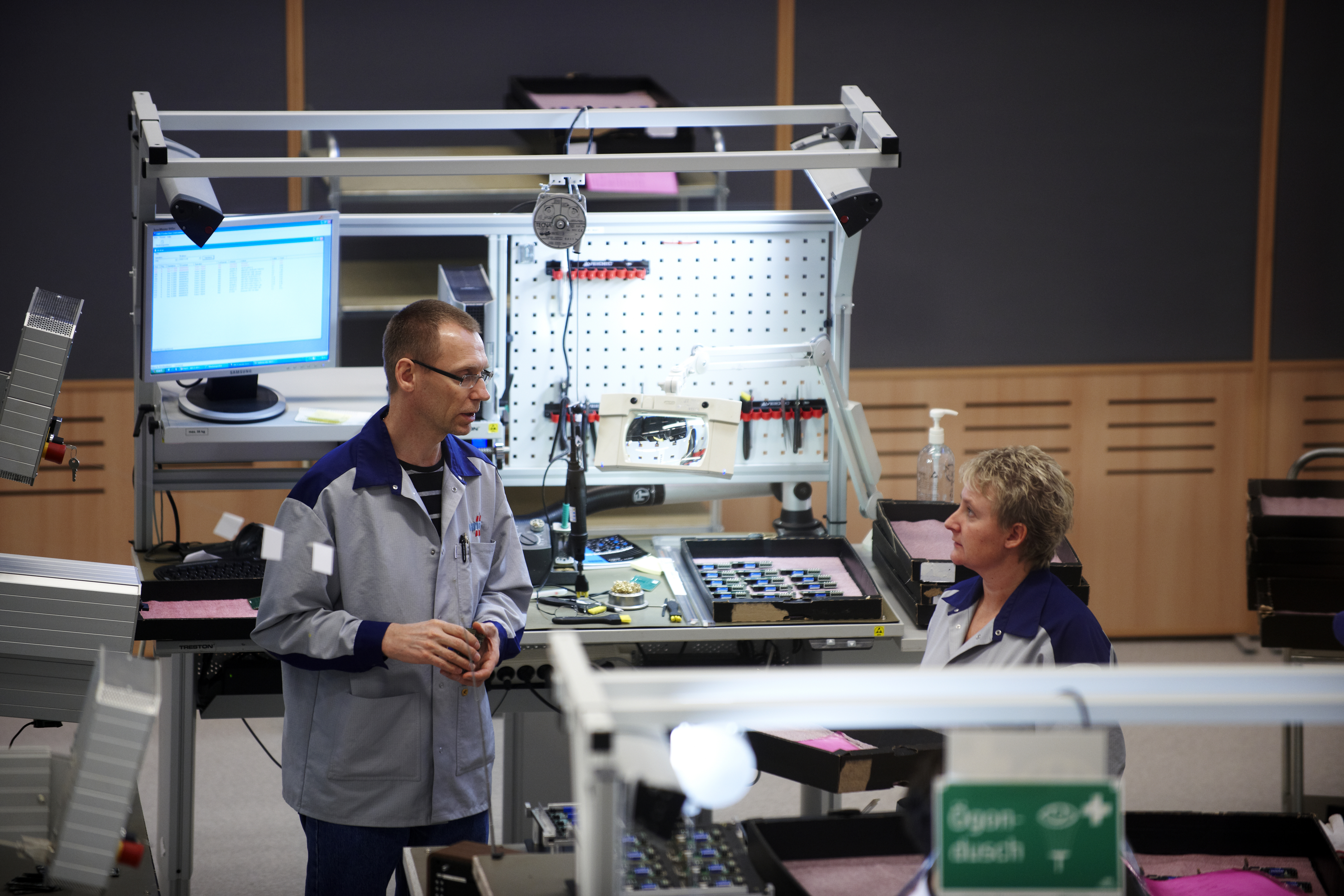
In 2001, HMS’ new production plant in Sweden is taken into operation and HMS was certified according to the ISO 9001:2000 quality standard, as the first company in Sweden.
2007-2012
Best in class
Industrial communication technology was now established and mature, and new investments in the emerging Industrial Ethernet technology called for more performance and functionally. HMS was growing at neck-breaking speed and moved to new head office and factory in Halmstad to expand capacity in R&D and manufacturing. The geographical expansion continued with HMS offices in India, UK and Denmark.
HMS was growing at neck-breaking speed and moved to new head office and factory in Halmstad.
Acquisition of the remaining minority of Intellicom AB brings the Netbiter Remote Management solutions into the HMS offering.
In 2008, HMS is named "Export Company of the Year" and 1,000,000 Anybus networks interfaces shipped (accumulated). One year later, in 2009, Staffan Dahlström takes over the helm at HMS as President and CEO.
In 2010, HMS introduced a new gateway concept with a simplified configuration, extended certification range, slim housing and many new network combinations. In 2012, the two-millionth Anybus module is delivered to long-time customer Atlas Copco.
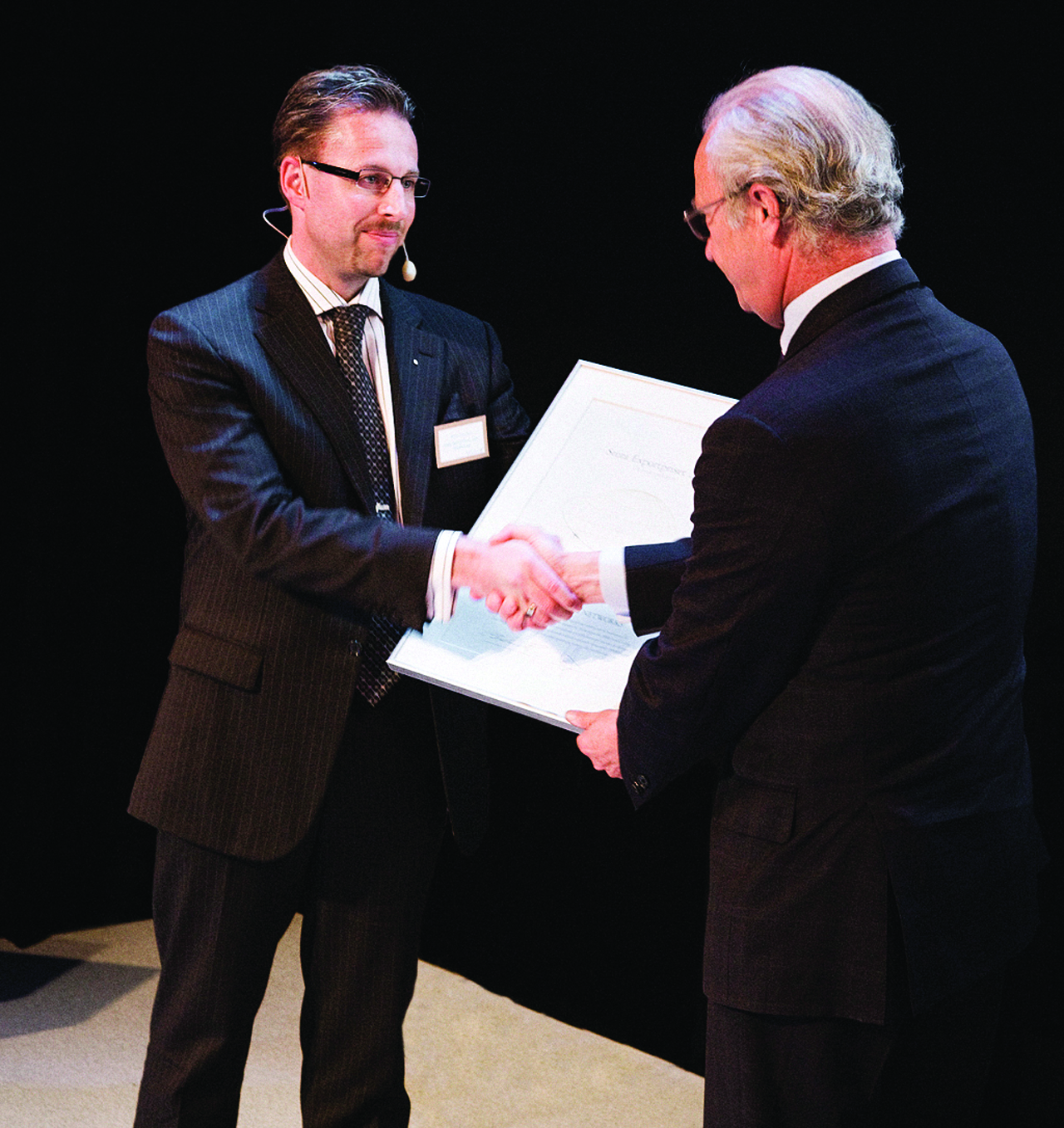
HMS is congratulated by His Majesty the King of Sweden for being named Sweden's "Export Company of the Year" 2008.
2013-2020
Growth 2.0
With strong financial resources, HMS complements its organic growth strategy by acquiring German IXXAT Automation GmbH, expanding HMS business into Machine Communication, Safety and Automotive.
HMS releases the Anybus CompactCom 40-series — a new generation of network communication products with increased performance and flexibility. The new network processor, the Anybus NP40, is deemed to be the best processor on the market by independent analyst firm Frost & Sullivan.
In 2014, the 3-millionth Anybus module is delivered to Bosch Rexroth.
In 2016, HMS acquires Belgian eWON, to become a worldwide leader within Industrial Internet of Things. 2016 is also the year when HMS acquires Spanish Intesis and ventures into Building Automation and communication within facility management.
In 2018-2020, HMS continued its journey:
- Opening a Singapore office
- Acquiring German technology company Beck IPC GmbH.
- Initializing fifth-generation mobile telephony (5G) with several leading telecom companies.
- Acquiring German WEBfactory GmbH.
2020-2024
Creating"the World's greatest Industrial ICT Company"
In 2020, HMS launches a new agenda with focus on three main topics: Planet, People and Growth. With ambitious goals of becoming "The World's greatest Industrial ICT Company," HMS presented a new playing field and an ambitious agenda towards 2025.
During the pandemic years, HMS consolidates but continues growing as demand for automation and efficiency increases.
In 2024, HMS communicates its biggest acquisition to date, Red Lion Controls, based in York Pennsylvania. Adding another 400 people to the organization.
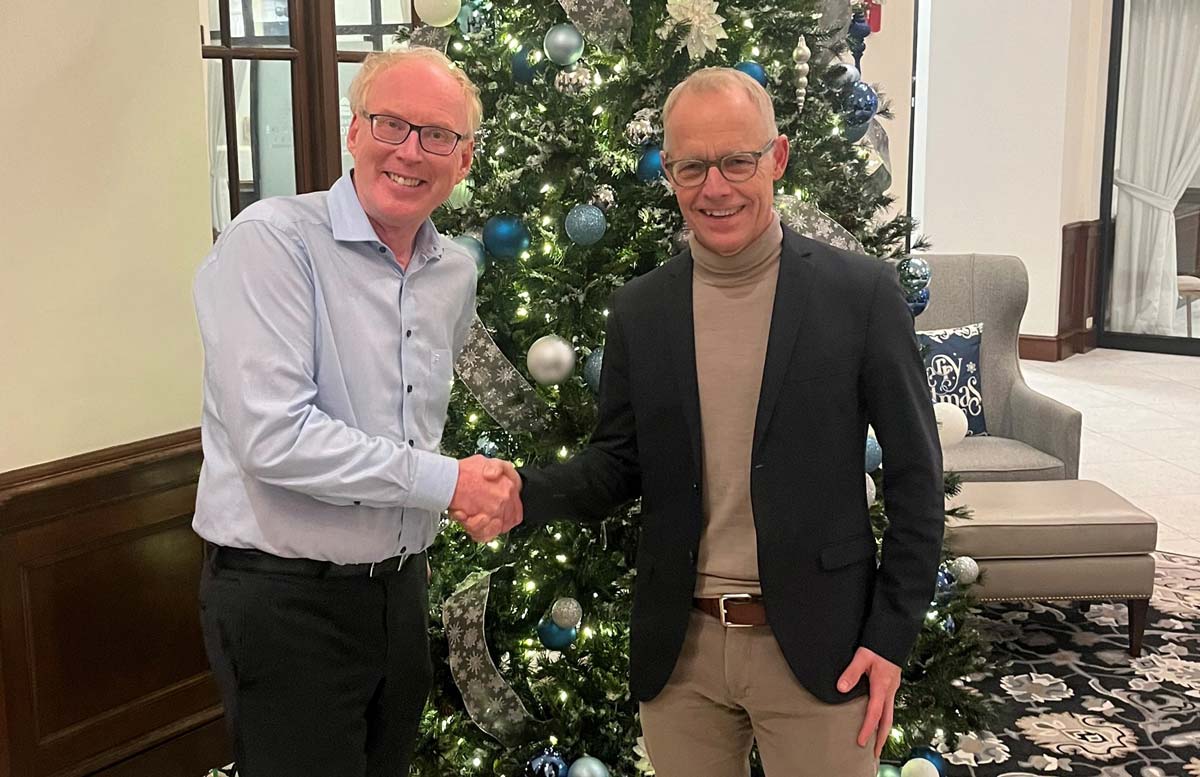
CEO Staffan Dahlström shakes hand with Red Lion CEO Marcel Van Helten.
In 2024, HMS also announced the delivery of the 10 millionth Anybus module to long-term customer Schneider Electric, as well as the 500,000th cloud-connected machine using Ewon remote solutions.
2024 also saw the acquisition of PEAK-System GmbH, a well-established German industrial communication company offering both hardware and software for industrial and automotive communication.
2025-
Divisionalizing for future growth
In 2025, HMS launches a new organization with three separate divisions: Industrial Data Solutions, Industrial Network Technologies and New Industries — catering for different customers.
